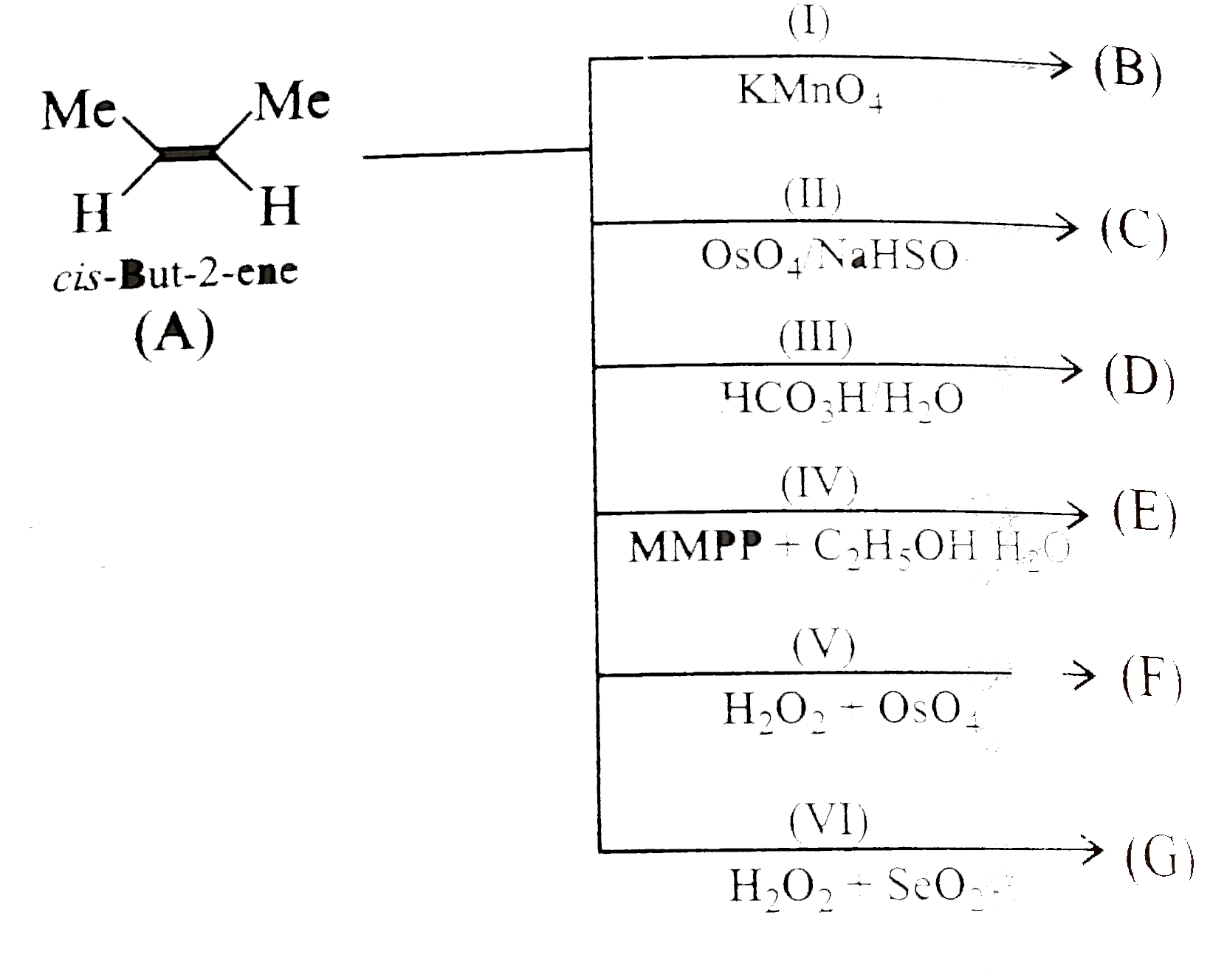Which of the following is//are autoredox reactions?
P4+өOH→H2POө2+PH3
S2O2−3→SO2−4+S
H2O2→H2O+O2
AgCl+NH3→[Ag(NH)3_(2)]Cl
The correct Answer is:A, B, C
To determine which of the given reactions are autoredox reactions, we need to analyze each reaction to see if the same substance undergoes both oxidation (loss of electrons) and reduction (gain of electrons). Here’s a step-by-step solution:
Step 1: Understand the Definition of Autoredox Reactions
An autoredox reaction is one in which the same substance is both oxidized and reduced during the reaction. This means that the oxidation state of the substance changes in both directions.
Hint: Remember that oxidation involves an increase in oxidation state, while reduction involves a decrease.
Step 2: Analyze Each Reaction
Reaction A
- Substance P:
- Oxidation: Changes from 0 to +5 (oxidized).
- Reduction: Changes from 0 to -3 (reduced).
Since substance P undergoes both oxidation and reduction, this is an autoredox reaction.
Hint: Check the oxidation states before and after the reaction to confirm both processes.
Reaction B
- Substance Ag:
- Oxidation: Changes from +2 to +6 (oxidized).
- Reduction: Changes from +2 to 0 (reduced).
Substance Ag also undergoes both oxidation and reduction, making this an autoredox reaction.
Hint: Look for changes in oxidation states for the same substance in the reaction.
Reaction C
- Substance O:
- Oxidation: Changes from -1 to 0 (oxidized).
- Reduction: Changes from -1 to -2 (reduced).
Oxygen undergoes both oxidation and reduction, indicating that this is an autoredox reaction.
Hint: Ensure that the same element is involved in both processes to confirm it’s an autoredox reaction.
Reaction D
- Substance Ag:
- Oxidation state remains +1 in both cases.
Since there is no change in the oxidation state of Ag, this reaction does not qualify as an autoredox reaction.
Hint: If the oxidation state does not change, it cannot be an autoredox reaction.
Step 3: Conclusion
Based on the analysis:
- Reactions A, B, and C are autoredox reactions.
- Reaction D is not an autoredox reaction.
Final Answer: The correct autoredox reactions are A, B, and C.
An autoredox reaction is one in which the same substance is both oxidized and reduced during the reaction. This means that the oxidation state of the substance changes in both directions.
- Substance P:
- Oxidation: Changes from 0 to +5 (oxidized).
- Reduction: Changes from 0 to -3 (reduced).
Since substance P undergoes both oxidation and reduction, this is an autoredox reaction.
- Substance Ag:
- Oxidation: Changes from +2 to +6 (oxidized).
- Reduction: Changes from +2 to 0 (reduced).
Substance Ag also undergoes both oxidation and reduction, making this an autoredox reaction.
- Substance O:
- Oxidation: Changes from -1 to 0 (oxidized).
- Reduction: Changes from -1 to -2 (reduced).
Oxygen undergoes both oxidation and reduction, indicating that this is an autoredox reaction.
- Substance Ag:
- Oxidation state remains +1 in both cases.
Since there is no change in the oxidation state of Ag, this reaction does not qualify as an autoredox reaction.
Based on the analysis:
- Reactions A, B, and C are autoredox reactions.
- Reaction D is not an autoredox reaction.
Topper's Solved these Questions
- BOOK - CENGAGE CHEMISTRY ENGLISHCHAPTER - REDOX REACTIONSEXERCISE - Exercises (Single Correct)91videos
REDOX REACTIONS
- BOOK - CENGAGE CHEMISTRY ENGLISHCHAPTER - REDOX REACTIONSEXERCISE - Exercises (Assertion-Reasoning)15videos
REDOX REACTIONS
- BOOK - CENGAGE CHEMISTRY ENGLISHCHAPTER - REDOX REACTIONSEXERCISE - Exercises (Linked Comprehension)24videos
REDOX REACTIONS
- BOOK - CENGAGE CHEMISTRY ENGLISHCHAPTER - PURIFICATION OF ORGANIC COMPOUNDS AND QUALITATIVE AND QUANTITATIVE ANALYSISEXERCISE - Assertion Reasoning Type5videos
PURIFICATION OF ORGANIC COMPOUNDS AND QUALITATIVE AND QUANTITATIVE ANALYSIS
- BOOK - CENGAGE CHEMISTRY ENGLISHCHAPTER - S-BLOCK GROUP 1 - ALKALI METALSEXERCISE - Archives Subjective8videos
S-BLOCK GROUP 1 - ALKALI METALS
Similar Questions
Knowledge Check
- Question 1 - Select One
Which of the following is not a redox reaction ?
ACuO+H2→Cu+H2OBNa+H2O→NaOH+12H2CCaCO3→CaO+CO2D2K+F2→2KF - Question 2 - Select One
Which of the following is a redox reaction ?
AReaction of H2SO4 with NaOHBIn atmosphere, formation of O3 from O2 by lighteningCFormation of oxides of nitrogen from nitrogen and oxygen by lighteningDEvaporation of H2O
which of the following is a redox reaction ?
View SolutionWhich of the following is a redox reactions:
View SolutionWhich of the following is not a rodox reaction?
View SolutionWhich of the following are redox reactions?
View SolutionConsider the following reactions :

Which of the following are stereospecific reactions ?View SolutionConsider the following reactions :

Which of the following are stereospecific reactions ?View Solution
